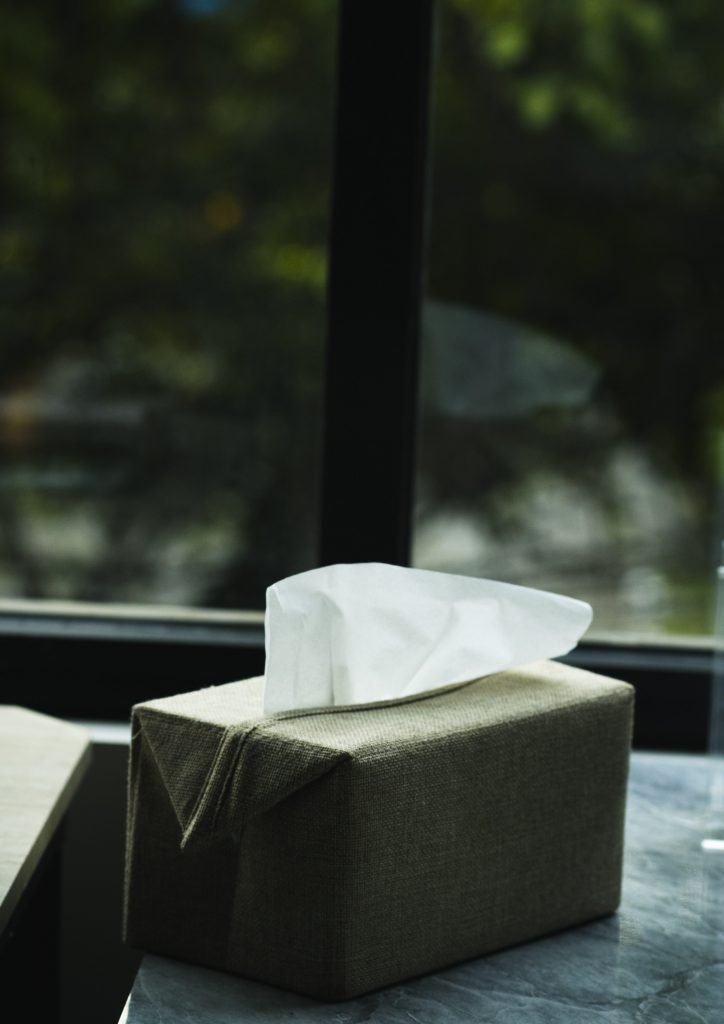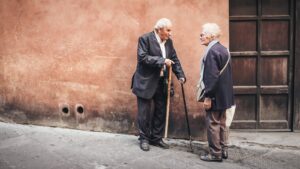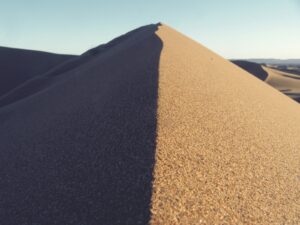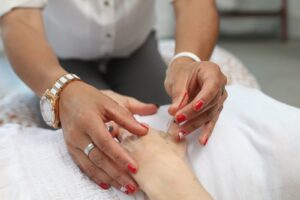Subscribe to the Newsletter
If you are interested in understanding how Traditional Chinese Medicine can improve your life sign up to my newsletter for the latest updates.

There’s a bit more to this question of Qi Deficiency – and how to overcome tiredness – than you might think!
Chinese medicine has had at least 2500 years to consider it. It goes a bit deeper than you may imagine.
It comes down to what, when in health, Qi does in the body.
That means you have to understand Qi.
It’s not easy to get your head round Qi and you may think some of this is a bit woolly. But we’re in the realm of ideas here, so forgive me.
Soon enough you’ll see they lead to very real places and conditions of ill-health. On the way you’ll have to learn a few Chinese terms because Western medicine and English don’t have equivalents.

Pretty soon, if you’re from a Western scientific tradition, I think you’re going to be labouring with this page.
I expect to say goodbye to you. If so, let me say thank you for your company so far.
If you take nothing else with you, let it be this: just about everything humans do starts with an idea.
Ideas are yang. If you work on them you may create something you can touch – yin.

When formless Qi comes together and thickens, ‘it becomes the origin of all beings’. A human being is the coming-together of the Qi of Heaven and of Earth. When you die, it disperses back into circulation. To that extent, nothing is lost, just its form.
Trouble is, Qi is the basis for everything you can conceive of, sense or touch and everything else too!
It takes different forms in your body, where it both creates and defends your health, maintains it, keeps things in place and clears out the garbage. It takes form in bones, brains and brawn. An important form it takes is that of Blood.
Every organ (zang-fu is the Chinese name) in your body has its own form of qi. (There’s more on this in TCM Theory).
For example:
If you’ve got qi, you can also have qi deficiency so each zangfu organ can be qi deficient, with its own set of symptoms. If you’re sick with one of them, you’ll recognise the symptoms.
And each zangfu organ can get qi stagnation. I guarantee you’ve had some of that.
If you understand yin and yang, qi is more like yang than yin, even though everything yin in your body is also made of qi.
Qi flows and, for health, must be able to flow and change. By flow, I mean it moves around the body; by change, it takes on different forms as it goes.
Now, the first sign of something practical!
Let’s take your Spleen zang organ. Click on Spleen functions to see what it does, or at least should do if you’re healthy.
One of the Spleen’s functions is to hold things in place, in fact to ascend things. If that fails, things fall down or out. Think of those whose bellies are obese and fall out and downwards. Or think of varicose veins – or inguinal hernias. All body parts not held properly in place occur at least partly because your Spleen is deficient.
The same applies, in a slightly different way, to internal Spleen functions.
Food after swallowing enters the Stomach which ‘rottens and ripens‘ it, then passes it down into your small intestine, where the Spleen function takes over to digest it. (This process of absorbing food through the walls of your intestines also comes under the Spleen). What it turns into is ‘Food qi’, but even so, the body can’t use it yet: it’s not yet proper Blood.
To become useful for the body it must first ascend to the Lungs to pick up air to become ‘Zong Qi’.
Zong qi has various translations. In China they call it Essential qi, or sometimes Chest qi. A well-known modern authority calls it gathering qi. In this form, the body can use it. It has become a useful form of qi: Blood.
If the Spleen fails to send this ‘food qi‘ upwards to the chest, the food won’t go through the right process of transformation. If it can’t ascend it, in effect the Spleen lets things descend. That means you end up with loose stools, even diarrhoea.
So there you have the first bit of useful information. If you’ve got diarrhoea or loose stools (and excluding the possibility that you’ve acquired a Stomach bug), probably your Spleen qi is deficient.
And if your Spleen qi is deficient, you will be too, because you aren’t getting nourishment from Blood, because there isn’t any! So you’ll be short of breath and a bit pale – signs of anaemia and of tiredness.

So make sure what you eat is good quality. That’s because poor food, or not enough good food, impedes the Spleen’s action in producing this first stage of blood stuff. Without good blood ‘stuff’, you certainly won’t get good Blood!
For a Chinese medicine ‘take’ on good food, read our pages on Blood-Building foods, and on Nutrition.
The template that designed you comes from the combined qi of your parents. It starts the ball rolling as you grow in the foetus, and after birth it provides ongoing support. I’ve written a separate page about jing-essence because it’s another big subject.
Every now and again in the following you’ll find a reference to it. For example, when making Blood, one of the inputs comes from jing-essence.
As we age, jing-essence quality and quantity reduces. Theoretically, when it runs out, we die, so the Chinese have spent a great deal of time and effort devising ways to prolong it, so far with no great result, as far as I can see. However, they do have good ideas for how to make it work better and to preserve it – to maintain health!
In the West we’re also pretty taken up with the idea though we approach it a different way, for example by preserving ourselves cryogenically. This doesn’t seem much use to me because if I understand Chinese medicine correctly, when we are warmed up back to life in the future, we’ll have the same amount of jing essence as when we went in. That is, not much, possibly little or none!
Of course I realise that the big hope is that people of the future will be dying to meet us and will have invented ways to inject more jing essence so we we’re all pumped up ready for life again.
I can’t imagine that they’ll much want to meet me, but they might like to meet Mozart – or Rossini, at a pinch: they both had a sense of humour. (Not Beethoven though! He may have had a sense of humour, but he was pretty manic-depressive. Hard going. And deaf.) Well, so would I. Unfortunately I shan’t have Mozart with me as he made the grave mistake of dying over 200 years ago: no use at all!
As explained, one of the Spleen’s functions is to ascend things and to hold things up or in place. If your Spleen qi is deficient, it can’t do this and that means that Qi is weak.
There’s a saying:
‘When Qi is weak, fluids leak‘.
How might you recognise this? Examples of leaking fluids include:
So we’d reached Zong qi, also called essential or gathering qi. It’s reached your chest and picked up air so the body can use it. The body uses it by helping the Lungs and Heart to push Blood and Qi to wherever they are needed in the body. On its way downwards, it gets first to the hands.

So if your hands are often cold, probably your zong qi is deficient. If so, probably one or more of the following are causes of this:
Zong qi also gathers in your vocal cords. You can tell how healthy someone’s zong qi is by listening to his voice. If it’s strong, it suggests good zong qi and healthy lungs.
If it’s unclear, muddled, hesitant, then because your Heart controls your speech, possibly your Heart zang qi is deficient in some way, or not functioning well.
It could also happen because of phlegm, which is garbage left behind when your Spleen was not tidying up very efficiently.
Zong qi also helps your Heart regulate your blood vessels. So signs of weak circulation, including varicose veins, suggest either zong qi is weak, or your Heart is not doing its job.
This depends on the training and background of your acupuncturist. If he or she is a 5 Elements acupuncturist, he wouldn’t worry much about weak zong qi, because he expects that his treatment of what is called the ‘causative factor’ will eventually sort it out.
If he’s using TCM theory, he’d have a range of options.

Zong qi now undergoes the last of these formative changes. By interaction from your inherited genetic know-how – your jing-essence (technically called yuan or ‘original’ qi) it becomes one of two different forms:
Nutritive qi (ying qi) – goes inside us to nourish our internal organs and the rest of our body. As such it undergoes further changes, becoming the qi of our individual organs as it passes around and within them. It circulates the Blood and flows along the acupuncture channels.
This is the qi that acupuncture treatment manipulates.
So if you present for acupuncture having eaten no breakfast, acupuncture won’t work so well.
And please don’t gulp down a coffee just before your treatment as coffee has precious little nutrition in it. If coffee does make you feel better it will have yanked a bit of yang energy out of your yin reserves, so you will probably already be mildly yin deficient as you walk in for the treatment! Read coffee for more on this!

Before acupuncture, make sure to have some food in you!
Please! Before acupuncture, make sure you have some good food in you to provide enough nutritive-ying qi for acupuncture to work with.
Defensive qi – wei qi – goes to the outside of your body to protect it. Because it is on the outside, it is yang in relation to nutritive (ying) qi which is on the inside: yin. The theory says it circulates under the skin and between the muscles.
It protects you mainly against external factors described by Chinese medicine as:
Your Lung energy is mainly in charge of this protective Wei Qi. If you often catch colds, probably your Lungs and/or Wei qi are weak. However, that’s not quite all, because your Kidney Yang qi also supports your Wei qi. If your Kidney yang is weak, that also weakens your Wei qi.

When, in the early stages of an infection, you sneeze, that’s your Kidney Yang supplying your Lung qi with the energy to eject the invader.
Don’t suppress that sneeze! It’s designed to put the bug outside you, not inside you!
Another important way the Chinese understood Qi was by the six actions in the body it performs.
You’ve read about some of them already, such as
The three other functions are:
All of which your Spleen does!
Of course Qi also protects you when you are wounded.
(Bit of pernickety stuff! Of course it’s the reaction of your body that produces the symptoms, not the wind or cold etc. It is the way your internally generated defensive energy reacts to the external stimulus that shows how your qi is working.)
How is Qi made? As we saw, it starts with food which after Spleen involvement and input from jing essence (which is controlled by Kidney yang) rises to the Lungs and becomes True or Zhen qi.
So deficient defensive wei qi happens when one or more of the following occur:
However, it is more complicated than even that, because although the main functions above relating to movement are upwards, yangwards one might say, one function of Lung qi is to descend qi towards the Kidneys, which later raise it up again.
Equally, qi can stagnate – as in qi stagnation. You get that when stressed and under pressure to do something that may be impossible or for which you haven’t developed resilience. (There’s a lot to be said for experiencing what it’s like to fail important exams a few times. You learn resilience, not to be over-sensitive, and it helps you to develop a sense of humour!)
The main cause of loss of appetite and tiredness from not eating enough, is Stomach Qi Deficiency.
However, low spirits (eg deficient Gallbladder qi, or deficient Heart Qi) and depression or sadness (stagnant or deficient Liver or Lung qi), and qi stagnation (mostly Liver Qi stagnation), can put you off food.
Then, because you aren’t eating enough, you get tired.
Causes of Tiredness and of Tiredness all the time, you can see from what’s gone above, include:

Tiredness in pregnancy has different causes depending on the stage of pregnancy reached.
In the early months possible causes include:
In pregnancy later months possible causes include:
If you get tired after eating, fundamentally you will have some kind of pre-existing qi deficiency. This could take several forms. For example:

As with Western medicine, one suspects anaemia. This – in Western medicine – comes from deficiency or shortness of red blood cells, the kind that carry oxygen round your body. Chinese medicine doesn’t classify it in quite such specific terms but certainly the result is similar:
Tiredness from vitamin deficiency occurs mainly when what you eat doesn’t contain the necessary nutrients for health and vitality, or because of poor digestion.
Stress usually tightens you up, causing Qi Stagnation. On our page on Qi stagnation there is a long list of foods that people find useful for tiredness and stress.
These foods are helpful in reducing the symptoms of stress caused by qi stagnation. They are not specifically for the tiredness it causes. Their aim, like acupuncture or herbal formulae for it, is transformative. If they work, the qi stagnation eases and the tiredness goes. They transform the situation.
For vitamins for tiredness and stress, Western nutritionists suggest B vitamins but they don’t work unless you can absorb them. So take them with food, regularly.

Other nutrients that often deplete from stress include zinc, but really, ongoing shortage of any vitamin or nutrient makes you less resilient and more likely to get ill and stressed.
Eating regularly a good diet, avoiding food when working or driving, (really, these are just good eating habits), reduce stress and tiredness together. And don’t forget exercise, often the best antidote to stress and qi stagnation!
Tiredness as distinct from weakness means a lack of energy and often sleepiness. Most of this page deals with tiredness.
Weakness is different. You might have slept badly but still be able to lift the shopping.
Weakness relates to muscular fragility. You can have weakness even when not tired.

When 13 years old, I was extremely thin (still am) but both the tallest boy in my senior school of 800 boys, and – for a term – the youngest. At home in the holidays I worked on our farm. We used to carry railway sleepers to weigh down plastic sheeting over our silage pit. I could do it for a morning, but for several days afterwards I could hardly get out of bed, whereas the other, mature, farm-workers, continued to finish the silage pit and then get on with other jobs.]
For example, a super-fit weight trainer had an accident to his left arm which continued to feel weak for months even after good physiotherapy. The muscle in question was on his Lung channel. One treatment of Lung 9 on that channel with one extra point on the leg – Stomach 36, cured him. It took less than two minutes. He couldn’t believe it!
Usually this comes from un-refreshing sleep. If so, read the following pages:
If the fuzziness continues, consider whether it is an excess or deficient condition.
Tiredness from joint pain is different from tiredness with joint pain. The former tiredness disappears when the joint pain goes so it is the pain that produces the apparent tiredness.
Tiredness with joint pain suggests the tiredness precedes the pain or would be present even without the pain. There are many causes of joint pain. Here are several:
Windy people rush around lots, make a noise, are usually young, often change their intentions or activities, tend to be disruptive. With the best will in the world, they cannot be entirely relied upon. But they are innovative, entrepreneurial, often hard-working and, if you can put up with them, a pleasure to be around. Small children are often ‘windy’: noisy, demanding, requiring constant attention, short attention spans etc. NB The term ‘windy’ as used here does not in any way denote ‘flatulence’ though it does not exclude it. After all, busy young people often rely on simple dishes like baked beans for nourishment. Beans produce flatus.]
I usually recommend a homoeopathic remedy for this, taken cautiously, because too much or too often makes it worse again! – Rhus Toxicendron 6c, up to three times daily, taken on its own and sucked like a sweet. If there is no improvement after a day, either the remedy or its potency are wrong for you, or perhaps you’re doing something to antidote it. If so consider acupuncture, moxa and herbs. Or get advice from a homeopath.]


Stay in Touch!
No spam, only notifications about new articles and updates.

Book a Video consultation if you want to know more about your symptoms
When tiredness goes on and on, indefinitely, there is nearly always a deficiency of one of these:
However, there are other reasons, described as coming from ‘fullness’ or ‘excess’. (For more on this see Full or Empty.) The following can combine with any of the four deficient conditions listed above.
Underlying these deficiencies or excesses are
As you probably appreciate by now, tiredness is a big subject. The above doesn’t cover everything, of course.
If you have comments or questions, do use the box at the bottom of the page!
To flourish, healthy Qi needs at least four basic things (explained in more detail below):
Movement is important! For many reasons, but mainly that Qi in health takes many forms (eg Defensive- wei – Qi; Heart Qi; Source – yuan – Qi: Blood – xue – Qi …) and your health depends on Qi’s ability to transform itself between its different forms.
When you exercise, your Lungs work harder and the process builds and works Qi too. Not only does Qi strengthen but it gets better at transforming.
What exercise is best? None is best and any may be best: for YOU! It depends on your body, your age and your health history. Something aerobic or very athletic suits some, compared with a slow walk down the garden or round the track or block for others!

By the way, please don’t confuse strength with health: building huge muscles takes hard work and persistent effort but can lead to qi stagnation, yang deficiency and Blood stasis. (Read those linked pages to find out more.) As a result you may be strong but you won’t be healthy, and probably not fit either as you’ll become more susceptible to illness.
Rest and sleep are necessary if you wish to build Qi. After exercise and its transforming effects, you must rest. Especially during sleep, when your shen-spirit descends into your Blood so that in the morning your spirit emerges nourished and rested and your Blood is re-invigorated by having nurtured your spirit through the night.
A big subject, covered on other pages on this site: for example Nutrition.
Western science has discovered the importance of a varied diet made up of suitable and properly grown foods.
Chinese medicine has somewhat similar ways of looking at food, but in terms of its energy (eg warming or cooling, moistening or drying etc) and by choosing foods representing each of the Five Elements or Phases.
Of course, eat food when
Qi wil be able to transform in your body if your joints are flexible – and if you are flexible mentally too!
Tai Qi helps you to move, allowing you to reach out towards your physical limits but not pushing you beyond them. So does yoga, but you should take care not to stretch too far, nor to practise it when you are cold: if you are new to yoga, take lessons first.

Flexibility includes regulating your work schedule so that you never remain in one position for too long. If you work at a desk, get up and move around frequently! Otherwise you may stiffen up, inclining your body to Blood stasis. (Why? Because one of the main causes of Blood stasis is Qi stagnation, and if you don’t move, you incline your body to Qi stagnation.)
Flexibility also includes being open to exploring and fostering relationships – preferably not just with those you know well, but with strangers.
Strangers? Yes, strangers! Strangers are mostly ordinary human beings, like you. Even saying ‘good morning’ to someone may lighten their day – and yours.
Or ask the way to somewhere, even if you already know! – it’s just a pretext for an interchange, involving a question, an answer and a thank-you with a smile.
If they have a dog with them, tell them how beautiful it is as you pass. But don’t lie – if the dog is a wreck, you could say how nice it must be to be able to walk with it!
Or, as you pass, remark on the weather and how good it is, or bad, for a walk.
These are all ways to practise moving Qi, exchanging it with others. They help your health and, though they don’t know it, they help the strangers’ too.
However, always do this with a smile, and it’s best not to do it in very crowded areas unless you have accidentally bumped into someone.
(By the way, be prepared for a conversation with the stranger – even better!)

This Introductory Chinese medicine course introduces you to the amazing thinking behind this ancient medicine, now increasingly in demand.

The Scottish College for Chinese medicine provides introductory courses for all, explaining Chinese medicine and its cultural background.

Master Tung’s acupuncture is a hidden treasure, lost to China but recovered in Taiwan from where it spread round the world.

Knee pain has five main causes. It’s certainly worth trying acupuncture before you resort to surgery!
Subscribe to the Newsletter
If you are interested in understanding how Traditional Chinese Medicine can improve your life sign up to my newsletter for the latest updates.
Subscribe to the Newsletter
If you are interested in understanding how Traditional Chinese Medicine can improve your life sign up to my newsletter for the latest updates.
4 Responses
Hello,
About body brushing, I would like to know which direction do we have to brush for someone who is weak. My friend and I went to a practitioner and he told us to always brush downward. However, another one told us to brush in direction of the heart. I’d like to know what is your view about this subject. For you information, I have a Heart Yin deficiency with Empty Heat and my friend has Lung Qi deficiency.
As always, thank you for your articles, they are so helpful. You make TCM much more easier to understand.
Hi Don
For most people, brushing towards the heart is probably best, the idea being to lightly stimulate the surface of the skin and the lymph vessels to push old blood and lymph back towards the centre to be ‘re-metabolised’ before it is re-circulated. If someone knows a lot about acupuncture and wants to support the qi mechanism, they might brush along the channels in the direction they flow. But personally, I brush towards the heart. Best wishes Jonathan
Hi Jonathon, thanks for all the interesting content you put out!
This article got me thinking about weakness after the mention of it. There’s something kind of minor I’ve always wondered about that I’ve never found a helpful explanation for in modern medicine, so I wonder if traditional has a better understanding of what’s happening.
I don’t usually get muscle weakness unless I’m tired or anaemic and I don’t have an illnesses that would explain it, however, when I laugh (genuinely laugh) my muscles go weak while laughing, even if it’s for a very short time, and I find it hard to stand if I can remain standing at all.
Other people who I mention it to say that it only happens to them when they’ve been laughing a long time or it doesn’t happen at all, but for me my knees will buckle straight away when something is funny. I’ve even literally fallen over laughing many times making people I know make jokes about how I’ll die laughing.
I’d be really interested to know how you, and how you think TCM, would explain this?
Dear Ally, What an interesting question!
Since I haven’t encountered your problem before, wiser heads may have better explanations.
In Chinese medicine, however, your Fire element energies, particularly those of your Heart, are associated with joy, and laughter is usually a beneficial form of joy.
Excessive or forced laughter indicates disharmony in the heart. (That would be ‘excessive’ for you: it might be normal for others.)
The Heart has various important functions one of which is providing vigour and regulation of Blood. If Blood is deficient, you get weakness.
Qi is also governed by how well it ascends, descends, enters, and exits the channels of the body. Normally the movement of Qi from the Heart is that of descending, so if the Heart energy is unregulated, Qi won’t properly descend, (just as a bruise on your arm weakens the strength of your hand) and since Qi leads Blood, your legs will weaken from reduction of Qi and Blood.
The same thing can also be said in Five Element theory: for example, if the Heart (Fire) is disturbed, Earth (Stomach and Spleen) may weaken as well as the muscles along their channels eg quadriceps.
Still another explanation involves (for some) slightly recondite channel theory in which your Shao Yin channels (Heart and Kidney) have a special relationship with your Shao Yang (Gallbladder and Three Heater) channels. Your Gallbladder is associated with your tendons which attach muscle to bone and bone to bone. Also, your Shao Yin arm channel (Heart) is connected to your Tai Yin Leg channel (Spleen) so weakness or blockage in one affects the other. In addition, a branch of your Yang Ming Leg channel (Stomach) enters the Heart and may be disadvantaged by a disturbance there. See my page on the Dr Tan Balance system for more on this, although that page is more about dealing with pain.
My guess is that your Fire element energies, especially those of your Heart, are easily disharmonised in your case by what for you is ‘excess’ laughter, causing deficient Qi and Blood in your legs, resulting in collapse – and yes, maybe funny for others!
Perhaps for a more informed diagnosis you should see a knowledgeable acupuncturist or someone practising Chinese herbalism.